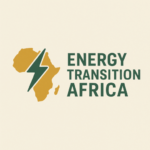Across Africa, oil and gas licensing is experiencing a sharp resurgence — even as the global chorus for climate action grows louder. According to Energy Capital & Power, more than 150 oil and gas blocks across over 10 countries are currently open for exploration, marking the highest level of activity seen in a decade.
From Namibia’s offshore basins to Mozambique’s gas fields and Nigeria’s inland creeks, fossil fuels continue to influence national energy strategies, even as renewables edge forward.
“Africa has the right to develop its resources,” noted one energy official during a recent industry roundtable. “Our people need jobs, our economies need fuel.”
It’s a sentiment rooted in development needs, but it raises an important dilemma: Can Africa achieve sustainable progress while doubling down on fossil investments?
A Transition in Name Only?
At COP28 in Dubai, African governments joined global pledges to accelerate the shift toward renewable energy and climate-resilient development. Ambitious net-zero targets were announced. Solar projects were spotlighted. Hope surged.
Yet in 2024 and early 2025, fossil licensing has accelerated.
IEA data shows that although Africa contributes less than 4% of global emissions, over 75% of its electricity still comes from fossil fuels. Renewable energy capacity is growing, but not at the scale or pace needed to transform the continent’s energy systems.
Meanwhile, Africa’s Forgotten 400 Million: Why Energy Poverty Is a Climate Injustice highlights the human cost of energy inequality — underscoring the urgency for solutions beyond fossil expansion.
The Donor Dilemma
Development finance institutions and international partners continue to announce green funding commitments. However, implementation remains uneven, often slowed by infrastructure deficits, procurement bottlenecks, and the rising cost of capital.
At the same time, global oil companies are quietly securing new exploration deals across West, Central, and Southern Africa. The result? A dual-track energy landscape where clean energy is promised — but fossil fuels are pursued.
“They fund us to plant trees, then invest billions to drill beneath them,” says Zanele Mkhize, an environmental lawyer from Johannesburg. “It’s the same cycle — just with greener language.”
What Drives the Fossil Push?
- Revenue Needs: Many African nations are grappling with post-COVID economic recovery, inflation, and public debt. Fossil licensing provides short-term fiscal relief.
- Energy Access: With 600 million Africans still lacking reliable electricity, policymakers argue for an “all options on the table” approach.
- Global Energy Politics: As some Western nations delay their own phase-outs and ramp up LNG exports, African countries question the fairness of being told to leapfrog fossil fuels.
Read more: Fossil Fuel Freedom – Why Nigeria Must Ditch Oil to Secure Its Future
The Real Risk
Africa risks overcommitting to fossil infrastructure that may become obsolete or stranded within a decade. Without strong frameworks to guide energy diversification, the continent could miss the opportunity to lead in decentralized, people-centered energy innovation.
What’s the Way Forward?
- Rebalance Energy Portfolios: Create long-term strategies that gradually reduce fossil reliance while scaling up renewables.
- Redirect Incentives: Shift budget allocations from fossil fuel subsidies to energy access initiatives, storage, and smart grids.
- Empower Local Systems: Invest in mini-grids, solar-for-health, clean cooking, and community-led energy models.
- Strengthen Accountability: Promote transparency in licensing, revenues, and long-term energy planning.
Explore: Leapfrogging to Renewables – Ensuring Africa’s Energy Transition Leaves No One Behind
Final Word
Africa’s development should never be compromised. But neither should its climate future. What’s needed is not a rejection of resources — but a transformation in how they are managed, distributed, and leveraged for sustainable impact.
The energy choices we make today are the legacy we leave behind. The world is watching. And so are our children.
💬 Join the conversation:
Should Africa continue licensing fossil fuels while pursuing a clean energy future? Drop your thoughts below or share this piece.

